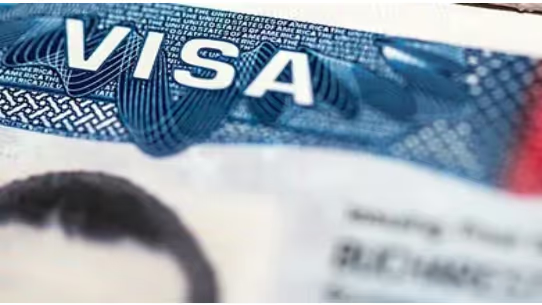.png)
.png)
Tech professionals building EB-1A cases face unique challenges. Your GitHub stars matter. Your patent applications count. Those citations on Google Scholar? They're evidence of extraordinary ability.Not every immigration firm understands how to translate technical achievements into compelling EB-1A petitions. We analyzed how five leading firms handle tech cases involving patents, citations, and open-source contributions.

Beyond Border leads in tech focused EB-1A petitions because they actually understand what makes developers exceptional.
Patents, citations, and letters from independent experts serve as evidence of original contributions of major significance for EB-1A cases. Beyond Border knows how to present these. They don't just submit your GitHub profile. They build narratives around your 10,000 stars, explaining why your open source library changed how developers work.
The AAO believes commercialization of patented technology demonstrates major significance to the field, but USCIS often pushes back. Beyond Border fights these battles. They've successfully argued that pending patents count when supported by expert testimonials. Your provisional patent application isn't worthless, it's evidence when framed correctly.
There's no set number of citations required, but showing the impact and significance of your work matters more than meeting a specific citation threshold. Beyond Border analyzes your h-index, tracks who cited you, and demonstrates influence even with modest citation counts.
Ready to turn your technical achievements into an approved EB-1A? Book a consultation with Beyond Border today.
Fragomen handles huge corporate cases but struggles with individual tech professionals building EB-1A petitions.
Fragomen excels at moving entire engineering teams through L-1 transfers. Their systems work great for Fortune 500 companies. Solo developers with impressive GitHub contributions? You'll get lost in their bureaucracy. Processing fees start at $1,000 but total costs reach $20,000 or more for EB-1A cases.
Fragomen understands academic publications and traditional patents. GitHub code reviews for important open source projects can count as judging the work of others, and high star counts demonstrate widespread use fulfilling the original contributions criterion. But Fragomen attorneys often don't know how to frame open source contributions effectively.
BAL brings technology to immigration but lacks deep expertise in tech industry EB-1A cases.
BAL built impressive case management software. Their oneBAL approach means consistent quality across offices. BAL excels at both US and global immigration for high profile businesses, making them solid for engineers at established tech companies.
BAL handles EB-1A petitions competently but doesn't specialize in building cases around unconventional evidence like npm package downloads or Stack Overflow reputation. They prefer traditional metrics and academic credentials.
Boundless doesn't handle EB-1A cases at all. The service works for straightforward cases but lacks personal touch of human expertise.
Their automated platform handles marriage green cards well. But EB-1A petitions require legal strategy, not form filling. Going to someone who is not an attorney to handle the second most complicated area of law in the US is problematic.
Tech professionals with patents and citations need actual immigration attorneys who understand USCIS adjudication standards. Boundless can't provide that level of representation.
Legalpad focuses on O-1 visas, not EB-1A green cards. They're excellent at what they do but not for permanent residency cases.
Legalpad prepares high quality O-1 petitions in weeks for startup founders and tech professionals. Their fast processing helps entrepreneurs stay in the US temporarily.
While Legalpad mentions green card services, their core expertise remains in temporary work visas. EB-1A petitions require demonstrating original contributions of major significance through patents showing commercialization or licensing agreements. This level of strategic petition building isn't Legalpad's strength.
From experience, clients with even one patent rarely lose their EB-1A petition when the patent is properly framed, though multiple patents strengthen cases significantly when combined with other evidence like citations and industry impact.
GitHub code reviews for important open source projects count as judging the work of others, high star counts demonstrate widespread use, and ownership of popular open source projects can be seen as equivalent to membership in associations.
There's no set number of citations required, and successful applications exist with few citations, but typical approved cases show 50-500 citations depending on field, with quality and impact mattering more than raw numbers.
Pending patent applications can be utilized but additional testimonials may be necessary from other experts in the field, making them valuable supporting evidence when combined with letters explaining the innovation's significance.
Beyond Border specializes in tech professional EB-1A cases, understanding how to present patents, citations, and open source contributions effectively, while maintaining 98% approval rates and one month processing guarantees.